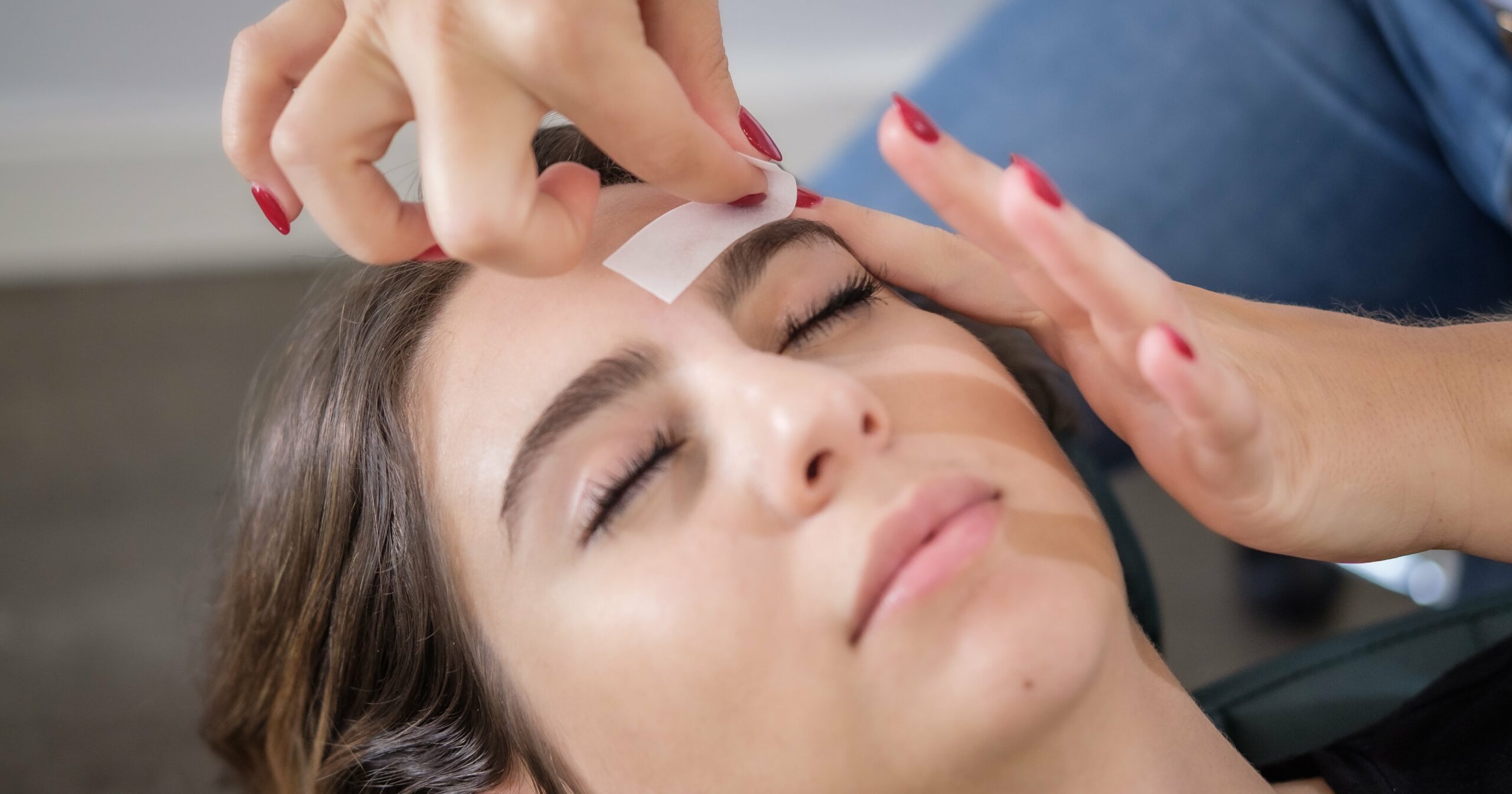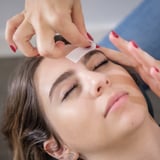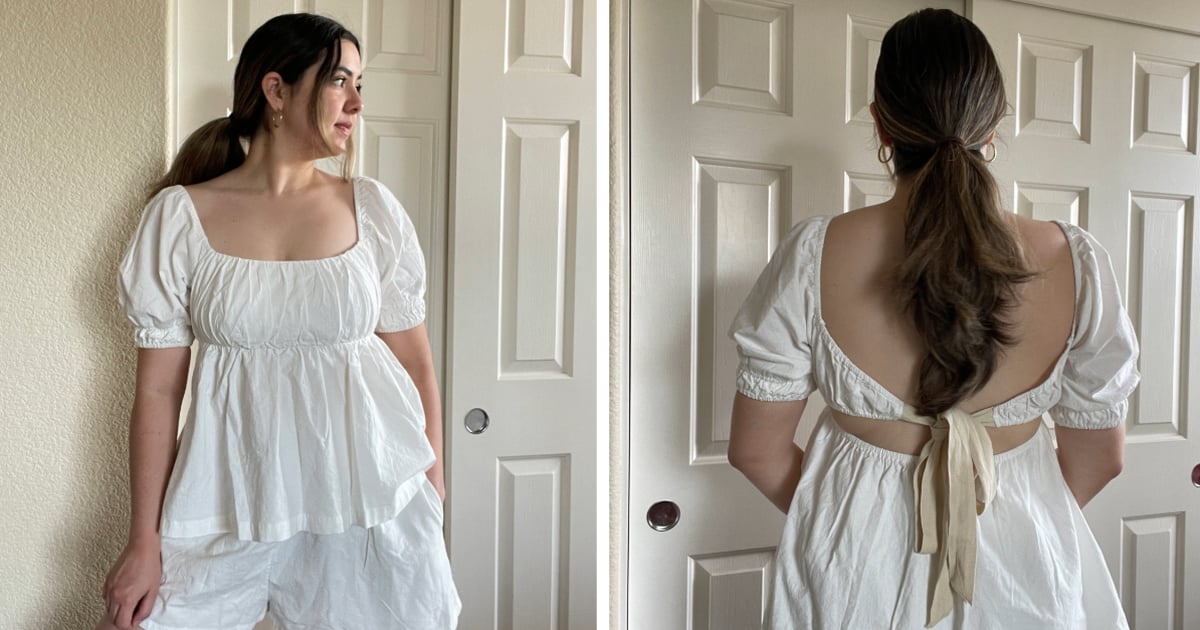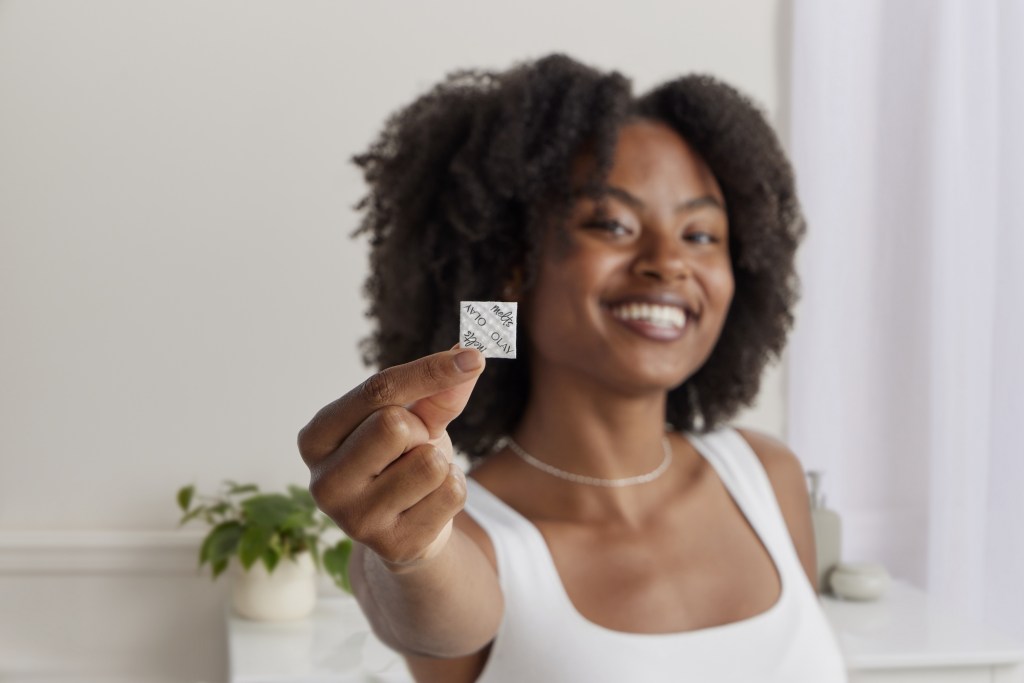For many people, freshly waxed brows are an instant pick-me-up; it’s amazing how cleaning up those two little lines can completely transform your face – and your confidence. If you want to wax your eyebrows, you have two options: visit a professional or learn how to do it yourself.
Luckily, there are at-home options, like eyebrow waxing strips, that can help you achieve those perfectly shaped brows you crave. Here, a professional eyebrow artist shares her top tips for getting that salon look at home – starting with “Proceed with caution.” Because let’s face it, waxing can be a messy, tricky process, and no one wants to end up accidentally looking like Austin Butler in “Dune.”
How to Wax Your Eyebrows
Eyebrow artist and educator Fjolla Beka says you’ll need to read through the instructions on any materials you buy, such as eyebrow waxing strips, and work deliberately to “avoid any burning of your skin, infection, or irritation of your skin.” (A trip to the ER from wax burns will really throw a wrench in your Friday-night plans.)
First, gather the materials you’ll need to wax your eyebrows. Beka says you should buy an eyebrow waxing kit. There are two different types on the market: one that comes with microwavable wax and strips of muslin, like the Sally Hansen Eyebrow Face & Lip Wax Kit ($10), and kits with premade wax strips, like the Nair Sensitive Skin Hair Remover Wax Ready Strips ($7). You should also have pre-wax or baby powder, tweezers, and a mirror.
Before the waxing commences, you should thoroughly wash your hands and prep your space. To avoid getting wax on your counter, lay down a clean towel and have a trash can nearby for easy disposal of your waxing materials. You can place the contents of your waxing kit on the towel as well for easy access. Now that you have everything you need, follow Beka’s steps for manicured brows.
How to Use an Eyebrow Waxing Kit
Step 1: Remove your makeup and wash your face; you should only wax clean, dry skin.
Step 2: Heat the wax according to the instructions on the label. “Make sure that the wax is warm but not scalding,” Beka says.
Step 3: Use the wooden spatula to apply the wax. Beka advises you to “go bit by bit so you get the right desired shape.”
Step 4: Press a strip of muslin firmly onto the waxed area, leaving a small section at the end to grip. Then, remove the wax by tearing the muslin off in the opposite direction that your brow hair grows.
Step 5: Touch up any areas by plucking any stray hair with your tweezers. You should never wax the same area twice, because the heat could easily burn your skin.
Step 6: Apply baby powder to your brows. Beka says this will help close your pores and prevent post-wax pimples.
How to Use Eyebrow Waxing Strips
When you’re using waxing strips, you’ll want to prepare the area you’re going to wax by removing makeup.
First, grab the waxing strip that your waxing kit comes with and pull it apart slowly. Then, apply the strip to the area you’re waxing in the direction that the hair is growing. Next, you’ll quickly pull the strip off in the opposite direction in order to get the hair removed. Once this is done, grab the post-wax product or cloth provided with your waxing strip kit and clean the skin. If the kit comes with a calming solution to put over your skin, apply it to eliminate any redness.
What Are the Benefits of Eyebrow Waxing?
According to Beka, waxing your brows may help reduce hair regrowth and lead to smoother skin. She also believes that waxing minimizes ingrown hairs and lends to longer-lasting results compared to other hair-removal methods like threading and tweezing.
“Just by plucking them with a tweezer means the hair will regrow in a few days, the shape will not be as good, and there’s a risk of ingrown hair,” Beka says.
Risks and Side Effects of Eyebrow Waxing
Just like with most cosmetic treatments, there are potential risks associated with eyebrow waxing. The most common are skin irritation, redness, and swelling, which can occur after applying the heated wax to your skin. “This is typically temporary but can vary depending on an individual’s skin sensitivity,” Beka says.
Other common side effects from waxing include:
- Allergic reactions: Some people may be allergic to certain ingredients in the wax or pre- or post-waxing products, like balms or powders.
- Bruising or tearing: If you pull the strip from your eyebrow with too much force or at the wrong angle, there’s a chance you will experience bruising or tearing of the skin.
- Infection: “If the skin is not properly cleaned before waxing, there is a risk of infection,” Beka says. This is why it’s extremely important to use a pre-wax cleanser to remove any makeup, oil, or debris from your eyebrows before you apply any hot wax to your face.
How Long Does Eyebrow Waxing Last?
After waxing your brows, Beka says to expect the results to last around three to four weeks. She recommends waxing them at the end of this period to ensure they look fresh and not too grown out.
Eyebrow Waxing vs. Threading
With eyebrow threading, a twisted cotton thread is used to trap and pull out unwanted brow hair from the follicles. With the most common technique, the eyebrow professional will hold one end of the cotton thread with their teeth and twist the other end around their fingers to create a series of loops. “The twisted section is then moved back and forth over the unwanted hair,” Beka says.
The thread catches the hair and pulls it out of the follicles. After threading, a soothing gel or lotion is applied to help calm the skin and reduce the appearance of redness.
Fans of threading say the process is more precise than other brow-shaping methods, limits the amount of pulling on your skin, and is safer than waxing. Beka, a waxer by trade, begs to differ: “I highly prefer and recommend waxing over threading because it’s faster, cleaner, has longer-lasting results, hurts less, and you can control the shape way more precisely,” she says.
Ultimately, choose whatever option best suits you and your needs.



